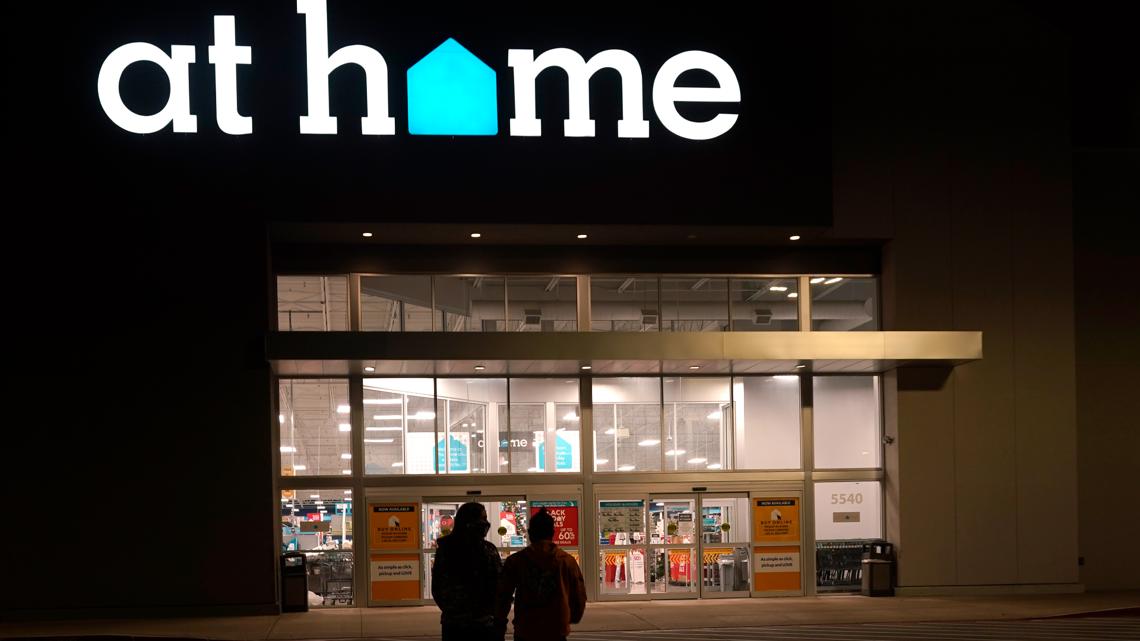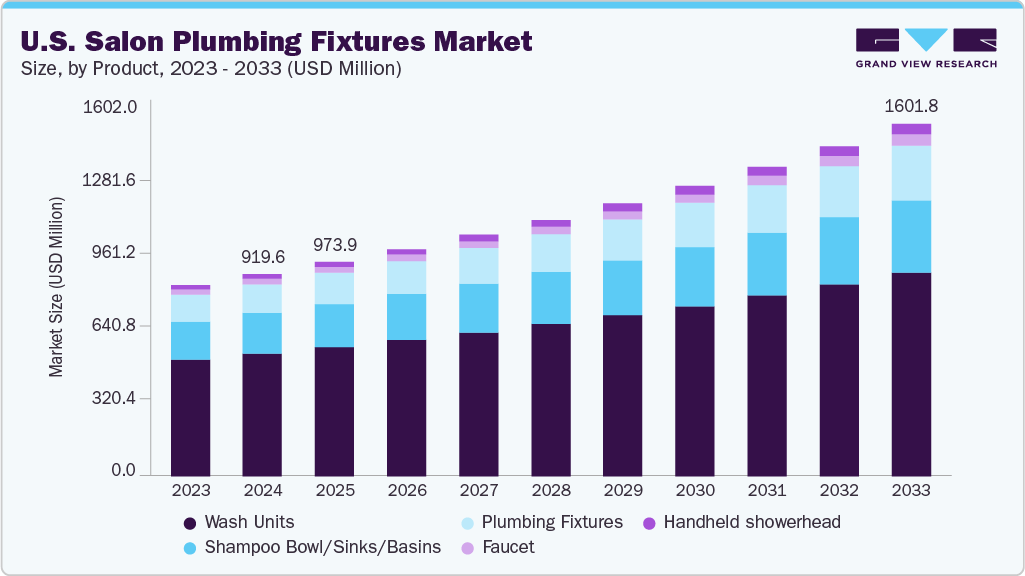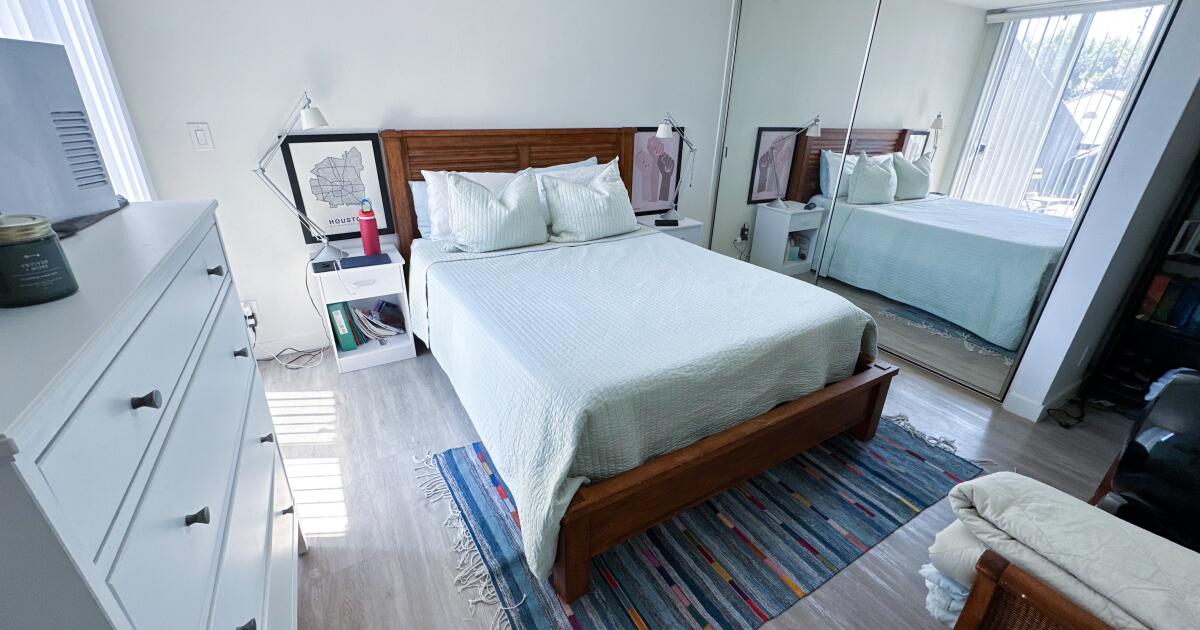Sarah Warner’s hopes were high as she approached the two-bedroom bungalow up for rent in Echo Park. The price was reasonable, the location was great, and the place had plenty of curb appeal.
When she opened the door, her heart sank. Bright white walls. Harsh, sterile lighting. And the coup de grace: gray laminate floors.
“As soon as I saw them, I knew it wouldn’t work,” she said. “Gray floors are my one deal-breaker.”
Warner, 26, politely endured the tour, as the landlord bragged about the clean, sleek spaces and the modern color palette. The gray laminate floors were actually luxury vinyl planks, the landlord assured her.
“The gray floors are everywhere,” she said. “You’ll come across a super charming home built 100 years ago, and inside it feels like a doctor’s office waiting room.”
Subscribers get early access to this story
We’re offering L.A. Times subscribers first access to our best journalism. Thank you for your support.
The trend soared in popularity over the last decade, but during that time, it became the subject of contempt on social media. People call it soulless, posting regretful before-and-after photos of house flippers ripping out hardwood in favor of gray laminate or turning warm Midcentury spaces into cold, modern ones.
Some people use rugs and other furniture to cover up some of their gray vinyl flooring.
The gray takeover isn’t confined to boxy new apartment complexes or brand-new builds. Across L.A., century-old Craftsman homes and picture-perfect bungalows have been hollowed out inside, outfitted with drab shades of white and gray.
“It’s so sad to see a house with so much character gutted for the sake of a trend that already feels super outdated,” Warner said.
Despite the criticism, it’s no mystery why the floors caught on. Cool and neutral, they reflect the larger architectural landscape of the day, where clean lines and minimalism reign supreme, the Apple-fication of housing that brought us modern box homes.
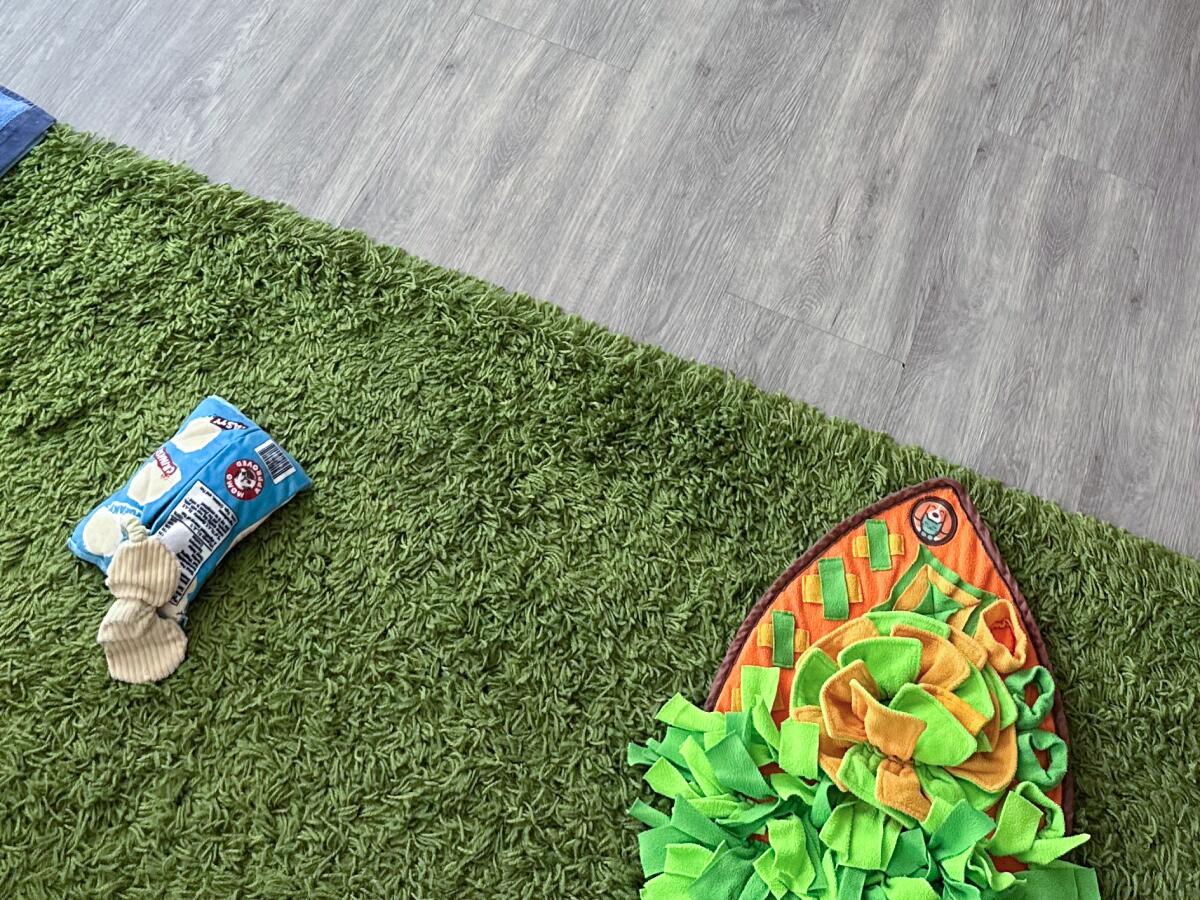
For developers, landlords and house flippers looking to turn a profit, gray vinyl and laminate floors have become a go-to choice.
They’re also cheaper than hardwood, and easier to keep clean. For developers, landlords and house flippers looking to turn a profit in a time when construction costs are high, gray laminate has become a go-to.
“It’s the only flooring I use,” said John Arzarian, a landlord who rents out a handful of apartments in central L.A. “It appeals to a broad amount of tenants, and I never have a problem filling the units.”
For Arzarian, it’s not about designing a unit that a renter will fall in love with; he’s simply trying to appeal to the broadest swath of people. Bold design choices — accent walls, colorful kitchens, etc. — could limit the potential tenant pool.
“I don’t really have an eye for design, so I just stick with the trends,” Arzarian said. “Once they go out of style, I’ll swap them for the next thing, as long as it’s cost-effective.”
Although many renters may pine for hardwood or tile, they’re rarely in a position to make demands. L.A. consistently ranks as one of the priciest metro areas in the country for renters, and for some, price and location outweigh aesthetic when looking for a new place.
But that doesn’t mean they’re happy about it.
“I just try to cover it up. I’ve bought so many rugs,” said Marissa Lackey, 31, who moved into a West Hollywood apartment with gray laminate floors last year.
At $2,300 a month, the place was cheaper than most others in the area, so she moved in despite the fact that it was “somewhat soul-sucking.”
“Hardwood floors were out of my price range. Anything with any character at all was out of my price range,” she said.
Lackey and several others interviewed for the story have an apocryphal theory about why gray has become the go-to floor color for rentals across L.A.: men.
“It’s become an inside joke among my friends,” she said. “If your landlord is a man, your floors are either gray or will be gray soon.”
The theory is purely anecdotal, of course, and doesn’t explain design choices everywhere in L.A. But several renters claim that male landlords often aren’t concerned with design and are not in touch with what renters want aesthetically.
“I like my landlord and think he’s a great person to rent from. But he doesn’t care about interior design, and it shows,” Lackey said.
Warner agrees. When house-hunting across the Eastside, she found that if the rental was recently renovated and listed by a man, it was much more likely to have the white-and-gray color palette.
“We need more women in real estate for a lot of reasons, but the best argument for it is that I don’t know one woman who enjoys gray floors,” she said.
But the hate hasn’t hampered the market.
Fallon Dobrisky, a real estate agent with the Rental Girl who specializes on the Eastside, has noticed that many of the cookie-cutter grayscale apartments are owned by large corporations that lease hundreds of units. With so many rentals, the goal is to design units cheap and bland enough that they can appeal to anyone, whereas a mom-and-pop landlord is more likely to preserve a rental’s original style since it might be the only home they rent out.
“Charming rentals go quick, but if a unit has a good price, it’ll find a renter no matter how it looks,” Dobrisky said. “Gray floors get more negative feedback, but it’s L.A. Someone will rent it.”
She currently has a unit up for lease in Glassell Park for $2,995 per month. The two-bedroom guesthouse is newly constructed with A/C and splashes of tile in the kitchen, but also showcases gray-brown laminate floors in the listing photos.
Nevertheless, she already has five tours set up after just a few days on the market.
“Anyone putting gray floors into a home isn’t seeing a negative financial impact because the units are still being rented,” she said.
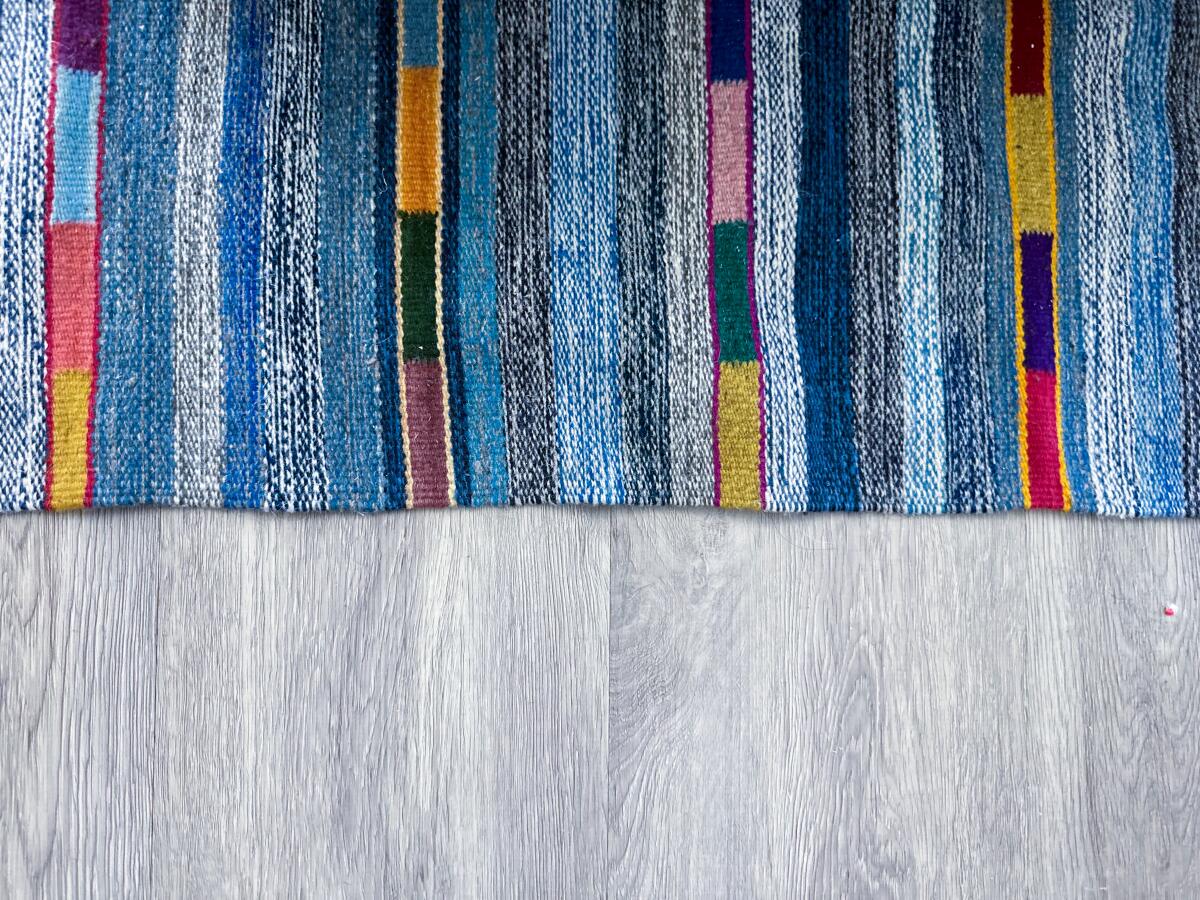
“Gray floors get more negative feedback, but it’s L.A. Someone will rent it,” one real estate agent says.
As gray creeps into more and more homes, a submarket has surfaced across L.A. as people become desperate for color. Deep-pocketed renters are willing to pay hundreds or thousands more per month for houses that feel like homes.
Dobrisky recently listed a $3,000 one-bedroom rental in Los Feliz with wood floors, arched doorways and original built-ins. Renters swarmed.
“Those types of properties don’t last long. There’s so much demand for places that feel unique,” she said.
One boutique rental company, GLB Properties, has homed in on that market. Founded in 1980, the family firm of Gene, Louise and Ivana Bramson focuses on restoring and renting out vintage, architecturally significant properties including Art Deco, Spanish Revival, Italianate and Hollywood Regency-style homes.
In a world of gray, its properties feel almost alien, remnants of a bygone architectural era. Flamingo pink paint jobs. Checkered floors in the kitchen. Old-school bathrooms awash in shades of gold, green and powder blue.
“We stay away from the trends,” Gene Bramson, 73, said. “White marble, subway tile. It’s predictable and safe, but it’ll get boring and dated soon.”
And people pay a premium for the company’s homes. Rentals usually get snatched up within a day or two of listing, and there’s typically a wait list of 10 to 12 people ready to move when one of the units becomes available.
“People check in monthly, seeing if anything’s opened up. Our Instagram DMs are always full,” Ivana Bramson, 36, said.
Their upcoming projects include a one-bedroom Spanish Revival-style casita in Hancock Park for $3,495, a two-bedroom French Gothic-style carriage house in Los Feliz for $6,995, and a five-bedroom villa in Miracle Mile for $14,000.
“Restorations aren’t cheap,” Gene Bramson said. “But it’s worth it to not have luxury vinyl planks in any of our homes.”

